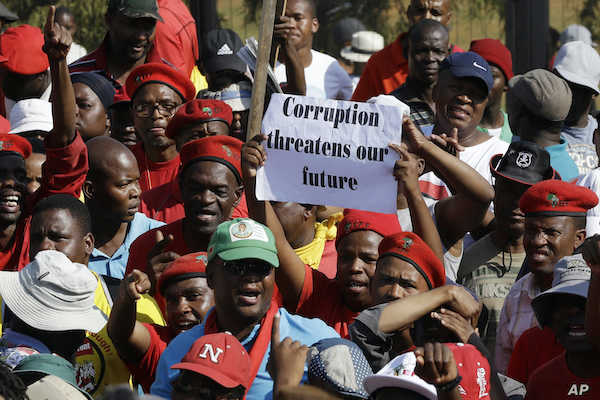It is typical of a paternalistic Western mindset to minimise issues faced by African nations as a consequence of political misconduct, tyranny and corruption. According to Transparency International, a non-governmental, anti-corruption organization based in Berlin, corruption in Africa is “hindering economic growth, political and social development”, and “a major barrier to basic freedoms”. In countries where the democratic model itself has failed, it is undeniable that government figures utilise power to rob state coffers, improve personal living standards and bribe cronies for political leverage. But it simply isn’t a fair analysis to hold Africa to a higher standard.
Numerous external factors have undoubtedly trapped much of the continent in an inexorable cycle – but many have shattered this trend. Diminishing the inherent cause of backward development and hindrance of individual liberties to African leaders themselves disrupts an unprejudiced examination of politics across the continent.
Firstly, each state has its own unique cultural, historical and political narrative that is reflected in their governance. They share certain similarities, however, in that much of its economic infrastructure was funded by the US, Soviet Union and China to obtain ideological leverage during the Cold War, and European imperialist administrations during their colonial scramble. Many post-colonial nations who swayed towards the ideology of African socialism following independence became benefactors of numerous infrastructure projects – a famous example being the ambitious TAZARA railway of the 1970s.
In Tanzania and Zambia, foundational leaders of African socialism Julius Nyerere and Kenneth Kuanda (respectively) called on China to aid in the construction of a railway connecting the financial hub of Dar es Salaam on the Tanzanian coast to Kapiri Mposhi, in landlocked Zambia’s central province. Following the Sino-Soviet split, China subsequently spent 2.67 billion USD on the project in an attempt to defer economic dependence from the USSR. It was completed in 1975, becoming the longest railway network in Africa at that time.
The project was a disaster. The railway itself became an easier means for China to access Zambian copper, but following privatisation of copper mines in the 1990s due to crippling economic conditions, railway networks began to compete for previously guaranteed cargo and TAZARA became a neglected liability. Further, the majority of pre-existing infrastructure was built by colonial bureaucracies, with the primary intent being the extraction of Africa’s myriad resources, which fueled Europe’s economic progress (eg. rubber from the Congo, cobalt from Zambia, diamonds and gold from South Africa etc.). This trend of Cold War powers (exerting ideological influence through financial investment targeted only at further resource extraction), has meant that Africa is not built to sustain itself, but is rather meant to be sustained by external investment and trade.
Resultant economic nonautonomy has translated to crippling levels of debt. In 2018 alone, sub-Saharan Africa owed the World Bank 538 billion USD. These countries have received no economic compensation for centuries of brutal resource extraction and forced labour by imperial Western states. Consequently, countries like Malawi, Uganda, D.R. Congo and Ethiopia have exorbitant poverty rates. When a privileged leading class arises given this context, it is not incomprehensible that many take to corrupt behaviours to financially benefit themselves.
But many nations have not fallen privy to these behaviours. In Namibia, under leftist leadership in the South West African People’s Organisation (SWAPO), the corruption perception index (CPI) has risen to 66/100. Botswana and Rwanda have similarly strong CPIs, at 61 and 53 respectively. Smaller island nations such as Mauritius, Cape Verde and Seychelles also have healthy CPIs. Comparatively, Australia’s corruption perception index stands at 77/100, whilst a country such as conflict-ridden and governmentally unstable South Sudan’s is a mere 13. In July, when pressed on how his government was tackling state cronyism, Rwandan President Paul Kagame replied, “We have always talked about not entertaining corruption as our way of life. That has always been at the centre of the politics that I have associated with and others in this country, and I think there is respect for that.”
Africa operates on an inequitable economic playing field. It has been crippled by history, and left in perpetual poverty by our global financial institutions. The perception that the sole cause of Africa’s economic stagnation is corruption on behalf of greedy politicians furthers racist undertones, and dismisses the true cause of its underdevelopment. It is time we realise that Africa is not corrupt – we have corrupted it.





